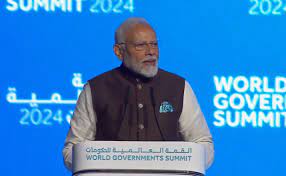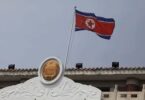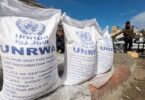LONDON (Arabnews): India’s prime minister said on Wednesday he would continue to push for “minimum government, maximum governance” should he win a third term in power as leader of the world’s largest democracy.
Indians will go to the polls no later than May this year to vote in a general election that Narendra Modi and his Bharatiya Janata Party are expected to win, giving the Hindu nationalist premier another five years in charge.
Speaking at the World Governments Summit in Dubai, Modi played up his domestic achievements over the past 10 years as prime minister and extolled his “small government” approach.
“I believe that people should neither feel the absence of a government, but at the same time, nor should there be pressure from the government,” he said.
“In fact, I believe that the government should interfere as little as possible in the lives of people.”
He claimed that, under his premiership, trust in the Indian government had increased, and not decreased as it had in other countries, in a post-COVID-19 world, adding that Indians had “trust in the intent and commitment” of their government.
He also said, amid geopolitical crises such as the conflict between Russia and Ukraine and unrest in the Middle East, India would look to play more of a stabilizing role in global affairs.
“It is as a friend to the world that India is moving forward,” he said.
“Terrorism, with every passing day, has been taking on new forms and is posing new challenges to mankind.
“Even climate-related challenges are becoming bigger with the passage of time. On the one hand, there are domestic concerns and on the other the international systems seem in disarray. And amidst all of this, every government faces a very big challenge of safeguarding its relevance.
“The world today needs governments that are inclusive, that take everyone along, and are clean and free from corruption,” he said.
Modi said that a shift in power was needed to ensure the developing world was more involved in global policy-making, was able to harness the benefits of technology and that its concerns were listened to.
“We have to listen to the voice of the Global South, we have to bring forward their priorities, we have to help these countries,” he said.
“We will have to create global prototypes for emerging challenges like artificial intelligence and cryptocurrency, and cybercrime. We will have to give priority to our national sovereignty and also keep the dignity of international law.”
During this visit to the UAE, Modi has paid tribute to both Dubai ruler Sheikh Mohammed bin Rashid Al-Maktoum, with whom he entered the WGS hall, and UAE President Sheikh Mohamed bin Zayed Al-Nahyan, who he described as “his brother” during his address.
Ahead of the opening of a Hindu temple in Abu Dhabi on Wednesday, the largest of its kind in the Middle East, he also said that ties with the UAE had reached “unprecedented heights.”
On Tuesday, Modi and Sheikh Mohamed signed several deals, including a bilateral investment treaty, building on a Comprehensive Economic Partnership Agreement signed in 2022, and penned an “intergovernmental framework agreement” for the India-Middle East-Europe Economic Corridor transit network to supplement existing sea and land routes.







